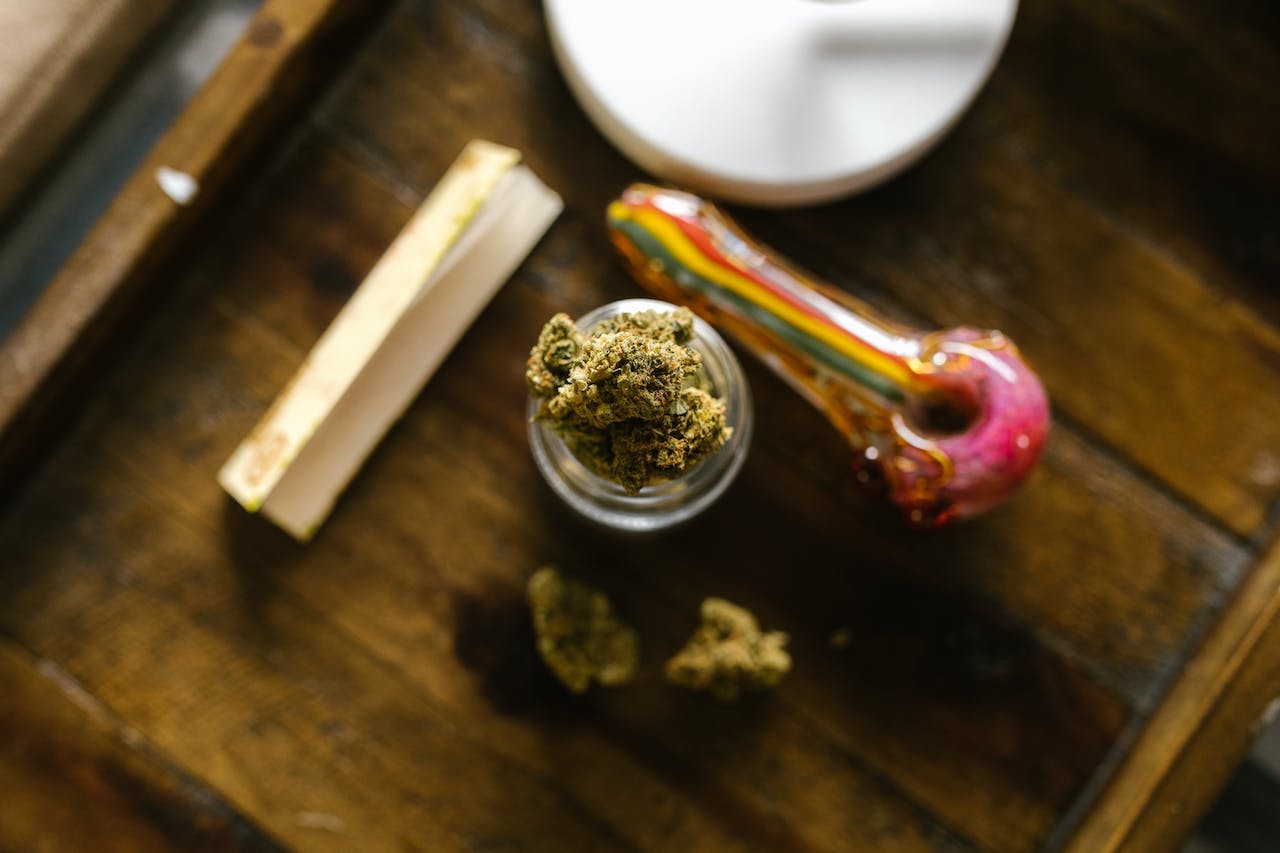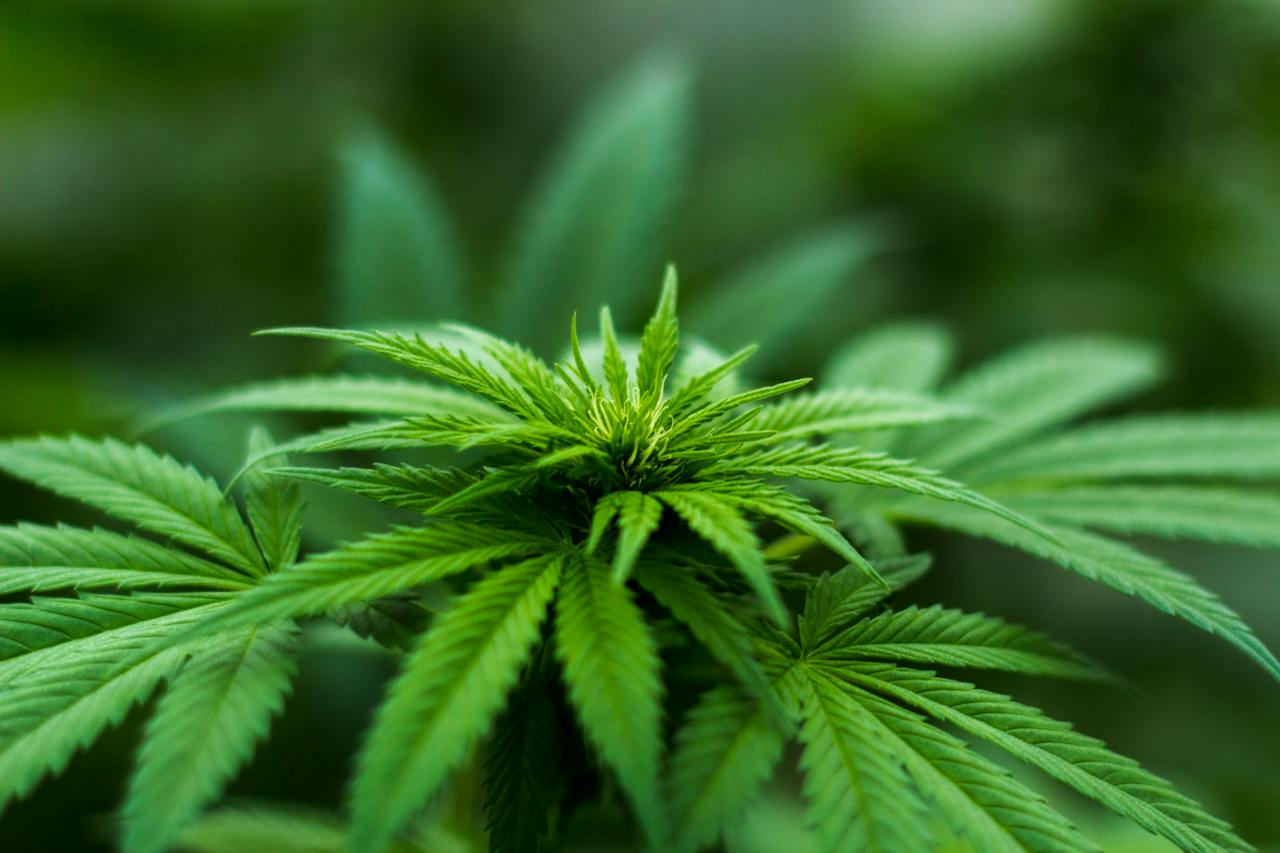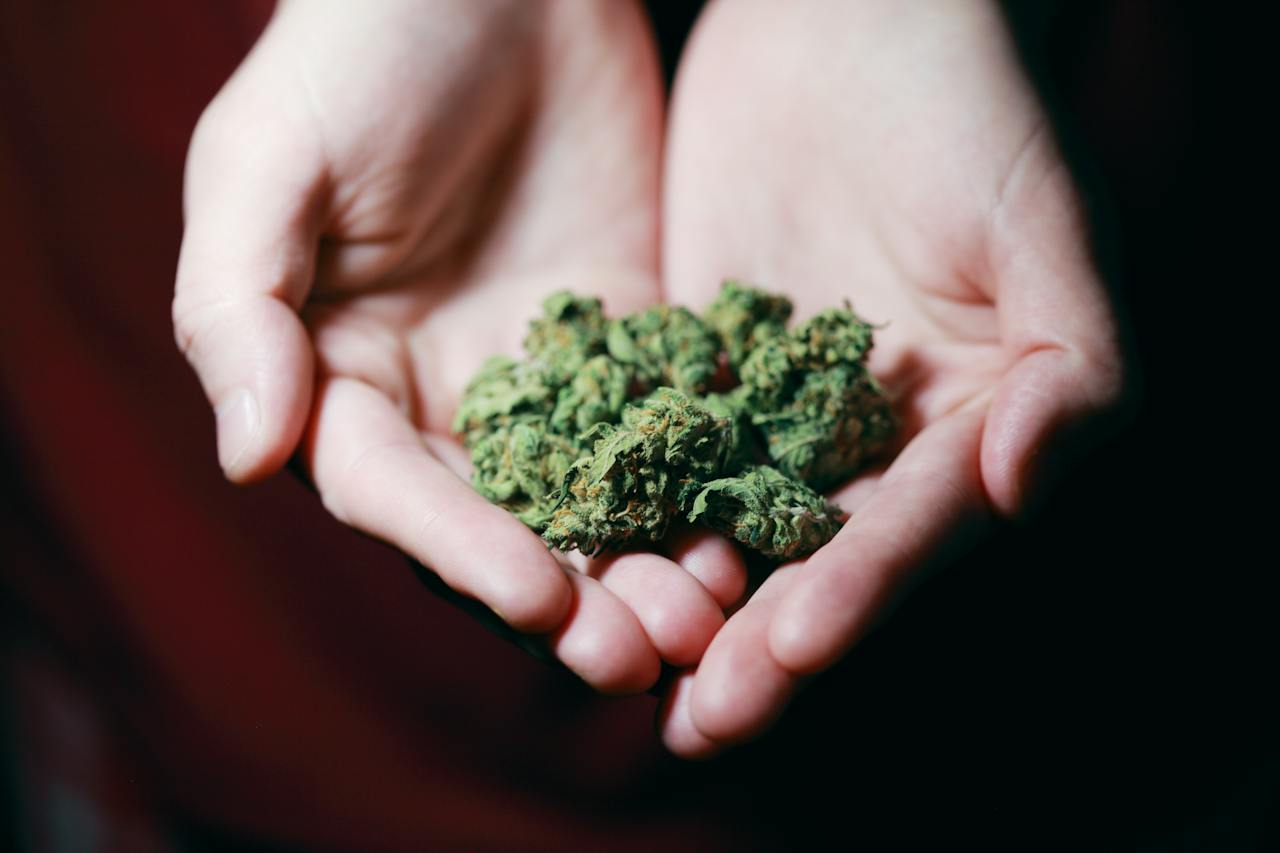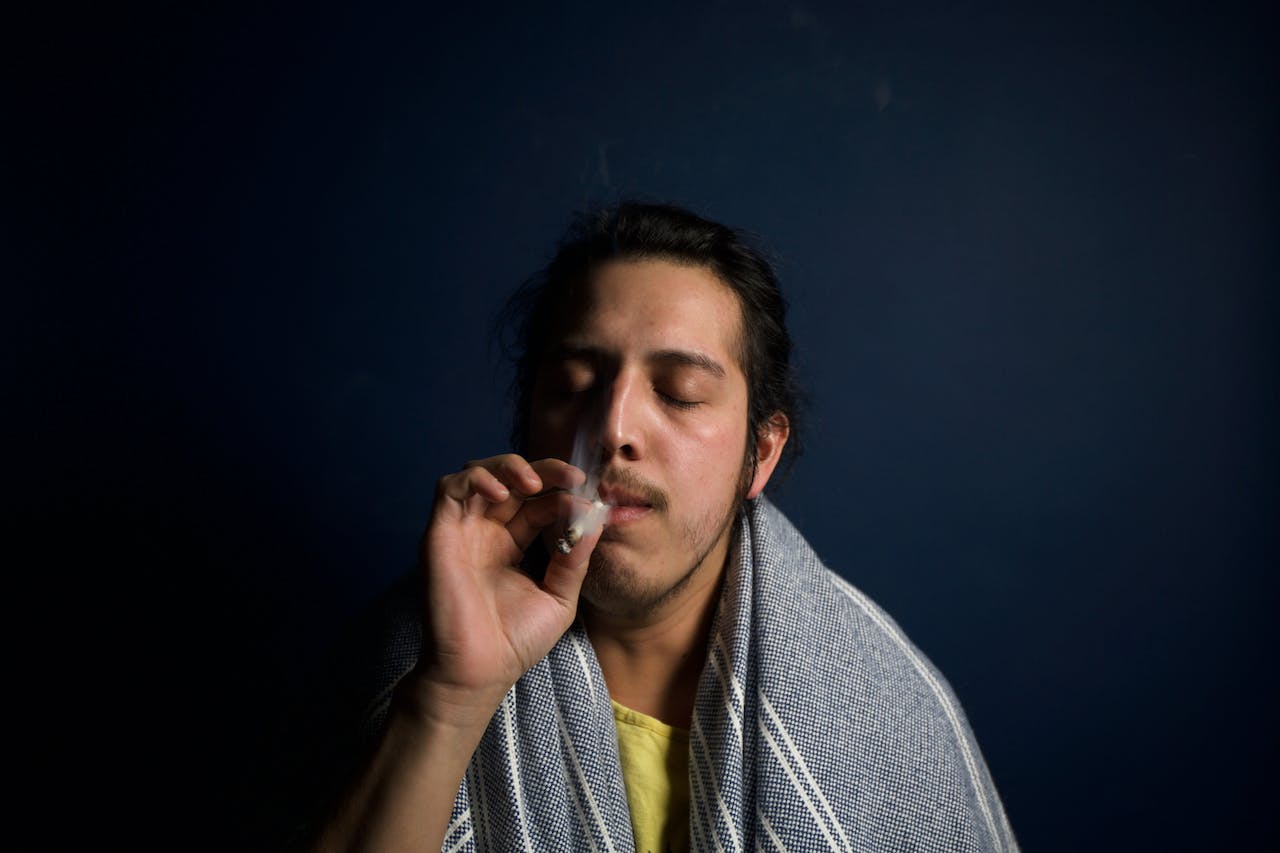CBD And Narcolepsy - What The Studies Says
When it comes to CBD and narcolepsy, understanding the potential benefits of CBD in managing narcoleptic symptoms is essential. CBD, short for cannabidiol, has gained significant attention for its potential therapeutic effects on various health conditions, and narcolepsy is no exception.
Author:Suleman ShahReviewer:Han JuJan 19, 2024289 Shares72.2K Views

In recent years, the intersection of cannabinoid research and neurological disorders has opened new avenues of exploration in the field of medicine. Among the various conditions drawing attention, narcolepsy stands out as a complex sleep disorder characterized by excessive daytime sleepiness and sudden episodes of muscle weakness, often triggered by intense emotions.
The search for effective treatments has led researchers to investigate the potential role of cannabidiol ( Cbd), a non-psychoactive compound derived from the cannabis plant, in managing the symptoms of narcolepsy.
This article delves into the intricate relationship betweenCBD and narcolepsy, exploring the existing scientific evidence, mechanisms of action, and the potential implications for those grappling with this enigmatic sleep disorder.
What Is CBD?
The endocannabinoid system in the brain and central nervous system is responsive to cannabidiol and other cannabinoids. The cannabis plant produces a number of cannabinoids, including the phytocannabinoid CBD and the psychoactive compound delta-9-tetrahydrocannabinol (THC).
Cannabis has been used medically for quite some time to treat ailments, including chronic pain and epilepsy. THC is responsible for the "high" or drunkenness that users of cannabis report. While THC may produce a "high" sensation in certain people, CBD does not have these properties.
It makes CBD an appealing choice for people who want the possible medical benefits of medical cannabis, such as reduced pain, anxiety, and sleeplessness, but don't want to experience the high often associated with marijuana use.
What Is Narcolepsy?
The neurological condition narcolepsy impairs sleep cycles. Narcolepsy may cause daytime fatigue even after 8 hours of sleep.
Since they feel tired throughout the day, they can't work or live normally. Most symptoms include daytime weariness or lethargy. Decreased muscle control and inability to control movement make cataplexy hazardous.
In rare circumstances, sleep paralysisand hallucinations occur. Narcoleptics have been documented to drive and fall asleep.
Potential Therapeutic Role Of CBD In Managing Narcolepsy
Understanding the potential therapeutic role of CBD in managing narcolepsy requires a close examination of the existing scientific evidence.
While research in this specific area is still in its early stages, studies exploring the broader interactions between cannabinoids and sleep regulation provide valuable insights into the potential benefits of CBD for individuals with narcoleptic symptoms.
Cannabinoids And Sleep Modulation - Animal Studies
Animal studies have played a pivotal role in unraveling the intricate relationship between cannabinoids and sleep. A notable study published in the "Journal of Clinical Investigation" investigated the effects of cannabinoids on sleep in a murine model. The findings revealed that cannabinoids, including CBD, can modulate sleep stability and duration.
While the study did not specifically focus on narcolepsy, it laid the groundwork for understanding how cannabinoids might influence sleep patterns, a crucial aspect for those grappling with sleep disorders.
In another study published in "Frontiers in Pharmacology," researchers explored the impact of a synthetic cannabinoid on sleep-wake cycles in rats. The results indicated that the cannabinoid exhibited sleep-promoting effects, suggesting that cannabinoids could potentially play a role in regulating sleep architecture.
While these findings are promising, translating results from animal studies to human applications necessitates further research to establish the relevance and applicability of narcolepsy.
Human Trials And Sleep Quality Improvement
While the bulk of the research on cannabinoids and sleep has focused on other sleep disorders, such as insomnia, a limited number of human trials have provided intriguing insights into the potential benefits of CBD for sleep quality.
A randomized, double-blind, placebo-controlled trial conducted at the University of Sao Paulo examined the effects of CBD on individuals with insomnia. The study found that CBD significantly improved sleep quality, suggesting a potential avenue for exploring CBD's impact on sleep disorders, including narcolepsy.
It's essential to note that while the study did not specifically target narcolepsy, the improvement in sleep quality raises questions about whether CBD's effects on sleep could extend to other sleep disorders characterized by disrupted sleep patterns, such as narcolepsy.
CBD And Cataplexy - Addressing Emotional Triggers
One of the distinctive features of narcolepsy is cataplexy, a sudden loss of muscle control triggered by emotional stimuli. CBD's known anxiolytic properties, documented in various studies, offer a potential avenue for addressing the emotional triggers associated with cataplexy.
CBD can modulate the neural circuits involved in emotional processing. By interacting with serotonin receptors in the brain, CBD may exert an anti-anxiety effect that could extend to mitigating the emotional responses leading to cataplexy.
However, it's crucial to approach these potential benefits with caution, as more research is needed to elucidate the specific mechanisms and determine the optimal dosage for individuals with narcolepsy.
Challenges And Considerations In CBD Research
Despite the promising findings, several challenges and considerations in CBD research for narcolepsy should be acknowledged. The legal status of cannabis and its derivatives, including CBD, varies globally and within different regions.
This legal complexity poses a challenge for researchers seeking to conduct large-scale clinical trials and gather comprehensive data on the efficacy and safety of CBD in narcolepsy management.
Furthermore, the lack of standardized protocols for CBD dosage and administration in clinical trials hinders the establishment of evidence-based guidelines for narcolepsy treatment.
Robust, well-designed studies with larger sample sizes are imperative to validate the preliminary findings and provide a more nuanced understanding of the potential benefits and limitations of CBD in narcolepsy management.
The Need For Comprehensive Research
While the existing scientific evidence offers promising glimpses into the potential benefits of CBD for narcolepsy, comprehensive research is needed to solidify these findings and provide a foundation for clinical applications.
The complex nature of narcolepsy, with its diverse symptoms and individual variations, necessitates a thorough exploration of CBD's mechanisms of action and its specific effects on sleep regulation in individuals with narcoleptic symptoms.
Collaborative efforts between researchers, healthcare professionals, and individuals with narcolepsy are crucial for advancing our knowledge in this field. Establishing a clear understanding of how CBD interacts with the endocannabinoid system, influences sleep architecture, and addresses the emotional components of narcolepsy is essential for developing targeted and effective therapeutic interventions.
Common Forms Of CBD
CBD, short for cannabidiol, has gained considerable attention for its potential therapeutic benefits in various healthconditions, including narcolepsy.
As individuals seek alternative approaches to managing their health, understanding the common forms of CBD and their respective attributes becomes crucial.
Cbd Oil
CBD oil is one of the most prevalent and versatile forms of CBD. Extracted from the cannabis plant, CBD oil typically comes in a small bottle with a dropper for precise dosing.
Sublingual administration, placing drops under the tongue, allows for quick absorption into the bloodstream, making it a practical option for those seeking fast relief. This form of CBD is popular among individuals managing narcolepsy due to its ease of use and potential for customizable dosing.
In the context of narcolepsy, CBD oil's versatility allows users to adjust their dosage based on the severity of symptoms and individual responses. This adaptability is particularly valuable given the diverse nature of narcoleptic symptoms and the need for personalized treatment approaches.
Cbd Capsules
For individuals who prefer a more standardized and convenient dosing method, CBD capsules offer a practical solution. These capsules contain a pre-measured amount of CBD, eliminating the need for users to calculate or adjust their dosage.
This form is discreet, easy to incorporate into a daily routine, and provides a consistent CBD intake, making it an attractive option for those managing narcolepsy.
The controlled dosage in CBD capsules can be advantageous for individuals with narcolepsy seeking a predictable and regulated approach to symptom management. This form of CBD aligns with the need for precision in dosing, especially when addressing the complex and variable symptoms associated with narcolepsy.
Cbd Edibles
CBD-infused edibles, ranging from gummies to chocolates, offer a flavorful and discreet way to incorporate CBD into one's routine. The appeal of CBD edibles lies in their palatability and ease of consumption, making them an attractive option for individuals who may be averse to the taste of CBD oil.
In the context of narcolepsy, where individuals may face challenges with daytime sleepiness and sudden episodes, CBD edibles provide a convenient and inconspicuous way to administer CBD.
The delayed onset of effects associated with digestion aligns well with the gradual and sustained relief often sought by individuals managing the chronic nature of narcoleptic symptoms.
Topical Cbd
Topical CBD products, such as creams, balms, and salves, are designed for localized application to the skin. While not typically associated with addressing sleep disorders like narcolepsy, topical CBD may have relevance for specific symptoms, such as muscle weakness or discomfort associated with cataplexy.
In the broader context of CBD and narcolepsy, topical applications may offer targeted relief for specific symptoms, contributing to a holistic approach to symptom management.
It's important to note that the efficacy of topical CBD in addressing narcoleptic symptoms requires further exploration, and individuals considering this form should consult with healthcare professionals experienced in cannabinoid therapeutics.
CBD And Other Symptoms Associated With Narcolepsy
While much attention has been given to the potential benefits of CBD in managing sleep-related symptoms in narcolepsy, it's crucial to explore the broader spectrum of challenges faced by individuals with this complex neurological disorder.
Beyond daytime sleepiness and cataplexy, narcolepsy often presents an array of symptoms that impact various aspects of daily life. In this context, examining the potential of CBD to address these diverse symptoms offers a comprehensive approach to narcolepsy management.
Cognitive Function And CBD - Enhancing Mental Clarity
Cognitive impairment is a common concern for individuals with narcolepsy. The persistent sleep disturbances associated with the disorder can lead to difficulties in concentration, memory retention, and overall mental clarity.
CBD, with its potential neuroprotective properties, emerges as a candidate for addressing cognitive challenges in narcolepsy.
Research on cannabinoids, including CBD, suggests their ability to interact with the endocannabinoid system and modulate neurotransmitter activity. This modulation may contribute to improved cognitive function by promoting neurogenesis and protecting against oxidative stress.
While more targeted studies on CBD and cognitive function in narcolepsy are needed, the existing evidence underscores the potential for a holistic approach to symptom management.
Anxiety And CBD - Alleviating Emotional Distress
Narcolepsy often brings about heightened levels of stress and anxiety, exacerbated by the unpredictability of symptoms and the societal challenges associated with a misunderstood condition.
CBD's well-documented anxiolytic properties offer a potential avenue for alleviating the emotional distress experienced by individuals with narcolepsy.
By interacting with serotonin receptors in the brain, CBD may modulate the neural circuits involved in emotional processing. It could result in a calming effect, potentially mitigating the anxiety and stress associated with living with narcolepsy.
Integrating CBD into a comprehensive treatment plan may provide individuals with a tool to manage not only the physical symptoms but also the emotional toll of the disorder.
Fatigue And CBD - Combating The Lingering Exhaustion
While narcolepsy is characterized by excessive daytime sleepiness, individuals may also contend with persistent fatigue that extends beyond sleep attacks. This lingering exhaustion can significantly impact daily functioning and quality of life. CBD's potential as an energy modulator and its reported ability to enhance alertness raise intriguing possibilities for addressing fatigue in narcolepsy.
Studies on CBD and fatigue are still in their infancy, but emerging evidence suggests that CBD may influence alertness through its interactions with the adenosine receptors in the brain.
Adenosine is a neurotransmitter that promotes sleep and relaxation, and by modulating its activity, CBD may contribute to increased wakefulness. Further research is needed to elucidate the specific mechanisms and optimal dosages for addressing fatigue in narcolepsy.
Depression And CBD - Elevating Mood
The chronic nature of narcolepsy, coupled with the challenges it poses to daily life, can contribute to feelings of depression in affected individuals. CBD's potential antidepressant effects, attributed to its impact on serotonin receptors and the endocannabinoid system, present a compelling aspect of its holistic therapeutic potential.
Preclinical and clinical studies have explored the antidepressant properties of CBD, with promising results in alleviating symptoms of depression and promoting a more positive mood.
Incorporating CBD into the treatment plan for narcolepsy may offer individuals a multifaceted approach to managing both the physical and emotional dimensions of the disorder.
Does CBD Oil Help Narcolepsy Symptoms?
The potential benefits of CBD oil in managing narcolepsy symptoms have garnered attention in both scientific research and anecdotal reports.
While the research is still in its early stages and more comprehensive studies are needed, there is growing interest in understanding how CBD oil might influence the symptoms associated with narcolepsy.
Sleep Regulation
CBD's interaction with the endocannabinoid system, which plays a crucial role in regulating sleep-wake cycles, raises questions about its impact on sleep disorders such as narcolepsy.
Some studies on cannabinoids, including CBD, suggest the potential to modulate sleep stability and duration, which could be particularly relevant for individuals experiencing disrupted sleep patterns associated with narcolepsy.
Cataplexy And Emotional Triggers
CBD's well-documented anxiolytic (anxiety-reducing) properties may offer potential benefits for individuals dealing with cataplexy, a common symptom of narcolepsy.
By modulating neural circuits involved in emotional processing, CBD could potentially help in reducing the emotional triggers that lead to cataplectic episodes.
Cognitive Function
Cognitive impairment is a common challenge for those with narcolepsy. CBD's potential neuroprotective effects and its ability to modulate neurotransmitter activity raise the possibility of enhancing cognitive function.
While more research is needed in this specific context, the existing evidence suggests that CBD could play a role in addressing cognitive challenges associated with narcolepsy.
Anxiety And Stress
Living with narcolepsy often brings heightened levels of stress and anxiety. CBD's ability to interact with serotonin receptors and modulate emotional responses might provide relief for individuals dealing with the emotional toll of narcolepsy.
Anecdotal reports suggest that some individuals find CBD beneficial in managing stress and anxiety associated with their condition.
Fatigue
Narcolepsy can lead to persistent fatigue that extends beyond sleep attacks. While research on CBD and fatigue is still in its early stages, some users report that CBD helpscombat feelings of exhaustion and promotes alertness.
The potential energy-modulating effects of CBD may offer a new avenue for addressing fatigue in narcolepsy.
Depression
The chronic nature of narcolepsy can contribute to feelings of depression. CBD's reported antidepressant effects, linked to its impact on serotonin receptors, present a potential therapeutic avenue.
Incorporating CBD into a holistic treatment plan may offer individuals a multifaceted approach to managing both the physical and emotional dimensions of narcolepsy.
CBD Products For Narcolepsy
The expanding array of CBD products on the market provides individuals with narcolepsy with a diverse range of options for incorporating this cannabinoid into their management plan. From edibles to oils, each product has unique characteristics that cater to different preferences and lifestyles.
Exploring the variety of CBD products allows individuals to tailor their approach and find a method that aligns with their specific needs and preferences.
CBD Oil - A Versatile Foundation
CBD oil, derived from the cannabis plant, is one of the most versatile and widely used forms of CBD. It typically comes in a small bottle with a dropper for precise dosing.
Application
Sublingual administration, placing drops under the tongue, allows for rapid absorption into the bloodstream. This method is favored for its quick onset of effects, making it suitable for addressing sudden symptoms associated with narcolepsy.
Customization
CBD oil's versatility enables users to customize their dosage based on the severity of symptoms and individual responses. This adaptability is particularly valuable given the diverse nature of narcoleptic symptoms.
CBD Edibles - Tasty And Discreet
CBD-infused edibles, including gummies, chocolates, and other treats, offer a flavorful and discreet way to consume CBD.
Application
The appeal of CBD edibles lies in their palatability and ease of consumption. The effects typically take longer to manifest due to the digestive process, providing a gradual and sustained relief.
Convenience
Edibles are convenient and inconspicuous, making them an attractive option for individuals dealing with daytime sleepiness and sudden episodes, common challenges in narcolepsy.
CBD Capsules - Standardized And Convenient
CBD capsules contain a pre-measured amount of CBD, eliminating the need for users to calculate or adjust their dosage.
Application
This form is discreet, easy to incorporate into a daily routine, and provides a consistent CBD intake. Capsules are suitable for those seeking a predictable and regulated approach to symptom management.
Controlled Dosage
The controlled dosage in CBD capsules can be advantageous for individuals with narcolepsy, offering a standardized approach to symptom relief.
CBD Topicals - Targeted Relief
CBD topicals, such as creams, balms, and salves, are designed for localized application to the skin.
Application
While not traditionally associated with sleep disorders, topicals may offer targeted relief for specific symptoms, such as muscle weakness or discomfort associated with cataplexy.
Considerations
The efficacy of topical CBD in addressing narcoleptic symptoms requires further exploration, and individuals considering this form should consult with healthcare professionals experienced in cannabinoid therapeutics.
CBD Vapes - Rapid Absorption
CBD vape products involve inhaling vaporized CBD using a vape pen or similar device.
Application
Vapingallows for rapid absorption, making it suitable for those seeking quick relief from symptoms. However, it's important to note that the safety of vaping and its potential respiratory effects require careful consideration.
Caution
Individuals considering vaping as a method should be cautious due to potential health concerns associated with this delivery method. Consulting with healthcare professionals is advisable.
CBD Tinctures - Sublingual Precision
Similar to CBD oil, tinctures are liquid extracts that are administered under the tongue.
Application
Tinctures offer a precise sublingual application, allowing for quick absorption. They are suitable for those who prefer a liquid form but may come with added flavorings for improved taste.
Dosage Flexibility
Tinctures provide dosage flexibility, allowing users to tailor their CBD intake according to individual needs and symptom severity.
CBD Safety Considerations For Managing Narcolepsy
As the interest in using CBD for narcolepsy management grows, it's essential to approach its utilization with a keen focus on safety considerations.
While CBD is generally regarded as safe, there are several key factors that individuals with narcolepsy should take into account to ensure a responsible and well-informed approach to incorporating CBD into their treatment regimen.
Interaction With Medications
Individuals with narcolepsy often rely on prescribed medications to manage their symptoms. Before introducing CBD into their routine, individuals must consult with their healthcare professionals.
CBD has the potential to interact with certain medications, particularly those metabolized by the cytochrome P450 system in the liver. Understanding these potential interactions is vital for preventing adverse effects or diminishing the efficacy of prescribed medications.
Dosage Considerations
Determining the appropriate dosage of CBD for managing narcolepsy symptoms is a critical aspect of its safe use. Each individual may respond differently, and factors such as weight, metabolism, and the severity of symptoms should be taken into consideration.
Starting with a low dose and gradually titrating upwards under the guidance of a healthcare professional can minimize the risk of adverse effects and optimize the potential benefits of CBD.
Quality And Purity Of CBD Products
The CBD market is diverse, offering a plethora of products in various forms. Ensuring the quality and purity of the chosen CBD product is paramount for safety. Opting for products from reputable manufacturers that undergo third-party testing can assure the absence of contaminants, such as pesticides, heavy metals, and residual solvents.
This attention to product quality reduces the risk of unintended side effects and ensures a safer CBD experience.
Legal Considerations
The legal status of CBD varies globally and within different regions. Individuals must be aware of the legal landscape surrounding CBD use in their specific location. Legal considerations are essential not only for compliance but also to guarantee the safety and legality of the CBD products being utilized.
Transparent communication with healthcare professionals about local regulations can contribute to a more secure and informed CBD experience.
Monitoring For Side Effects
While CBD is generally well-tolerated, some individuals may experience side effects. These can include drowsiness, dry mouth, changes in appetite, or interactions with other medications.
Monitoring for these side effects is crucial, especially during the initial phases of CBD integration into a narcolepsy management plan. Open communication with healthcare providers allows for prompt adjustments and ensures the safety of the treatment approach.
Individual Variability In Response
Individuals with narcolepsy should recognize that responses to CBD can vary based on various factors, including genetics, overall health, and lifestyle. What works well for one person may have a different effect for another.
Therefore, adopting a patient-centered approach and maintaining open communication with healthcare professionals is integral to navigating the individual variability in response to CBD.
Long-Term Safety Considerations:
While short-term studies on CBD have shown promising results, the long-term safety of CBD use for managing narcolepsy requires further investigation. Individuals considering the prolonged use of CBD should be mindful of emerging research findings and stay informed about any updates or recommendations from the scientific and medical communities.
CBD And Narcolepsy - FAQs
What Forms Of CBD Are Commonly Used For Narcolepsy?
Common forms include CBD oil, edibles (like gummies), capsules, topicals, vapes, and tinctures. Each offers unique benefits and considerations for individuals with narcolepsy.
Is Vaping A Recommended Method For Using CBD In Narcolepsy Management?
While vaping allows for rapid absorption, its safety in the long term raises concerns. Individuals considering vaping should exercise caution and consult healthcare professionals for advice.
Can CBD Effectively Manage Sleep Disturbances In Narcolepsy?
While research on CBD and narcolepsy is ongoing, some studies suggest that CBD may influence sleep patterns, potentially offering benefits for individuals with narcoleptic symptoms.
Can Too Much CBD Disrupt Sleep?
Doses of 15 mg or less may enhance energy and reduce fatigue. Small CBD dosages may boost brain protein synthesis in wakefulness-related areas. Thus, you may need help sleeping. A higher dosage reverses these effects.
Is CBD Safe To Take Daily For Sleep?
Sometimes, individuals self-medicate sleeping issues using CBD. CBD looks to be safe, but long-term data is few. Although doctors are unclear whether CBD aids sleep, some data shows it may enhance duration.
What Is The Best Treatment For Narcolepsy?
GPs or specialists may prescribe stimulants like modafinil, pitolisant, sodium oxybate, or solriamfetol. These drugs boost the central nervous system, keeping you alert throughout the day. They are usually used as morning pills.
Considering All This
The intersection of CBD and narcolepsy represents a captivating area of exploration within the broader landscape of cannabinoid research. While the existing scientific evidence is promising, it is essential to approach the potential benefits of CBD for narcolepsy with cautious optimism.
Rigorous research, standardized protocols, and comprehensive clinical trials are imperative to establish the efficacy, safety, and optimal usage of CBD in managing narcoleptic symptoms.
As our understanding of the endocannabinoid system, sleep regulation, and CBD's mechanisms of action deepens, the prospect of leveraging this non-psychoactive compound for the benefit of narcolepsy patients becomes increasingly intriguing.
Collaborative efforts between researchers, healthcare professionals, and individuals with narcolepsy are crucial to advancing our knowledge in this evolving field and, ultimately, providing more effective and personalized treatment options for those navigating the complexities of narcolepsy.
Jump to
What Is CBD?
What Is Narcolepsy?
Potential Therapeutic Role Of CBD In Managing Narcolepsy
Common Forms Of CBD
CBD And Other Symptoms Associated With Narcolepsy
Does CBD Oil Help Narcolepsy Symptoms?
CBD Products For Narcolepsy
CBD Safety Considerations For Managing Narcolepsy
CBD And Narcolepsy - FAQs
Considering All This

Suleman Shah
Author
Suleman Shah is a researcher and freelance writer. As a researcher, he has worked with MNS University of Agriculture, Multan (Pakistan) and Texas A & M University (USA). He regularly writes science articles and blogs for science news website immersse.com and open access publishers OA Publishing London and Scientific Times. He loves to keep himself updated on scientific developments and convert these developments into everyday language to update the readers about the developments in the scientific era. His primary research focus is Plant sciences, and he contributed to this field by publishing his research in scientific journals and presenting his work at many Conferences.
Shah graduated from the University of Agriculture Faisalabad (Pakistan) and started his professional carrier with Jaffer Agro Services and later with the Agriculture Department of the Government of Pakistan. His research interest compelled and attracted him to proceed with his carrier in Plant sciences research. So, he started his Ph.D. in Soil Science at MNS University of Agriculture Multan (Pakistan). Later, he started working as a visiting scholar with Texas A&M University (USA).
Shah’s experience with big Open Excess publishers like Springers, Frontiers, MDPI, etc., testified to his belief in Open Access as a barrier-removing mechanism between researchers and the readers of their research. Shah believes that Open Access is revolutionizing the publication process and benefitting research in all fields.

Han Ju
Reviewer
Hello! I'm Han Ju, the heart behind World Wide Journals. My life is a unique tapestry woven from the threads of news, spirituality, and science, enriched by melodies from my guitar. Raised amidst tales of the ancient and the arcane, I developed a keen eye for the stories that truly matter. Through my work, I seek to bridge the seen with the unseen, marrying the rigor of science with the depth of spirituality.
Each article at World Wide Journals is a piece of this ongoing quest, blending analysis with personal reflection. Whether exploring quantum frontiers or strumming chords under the stars, my aim is to inspire and provoke thought, inviting you into a world where every discovery is a note in the grand symphony of existence.
Welcome aboard this journey of insight and exploration, where curiosity leads and music guides.
Latest Articles
Popular Articles





